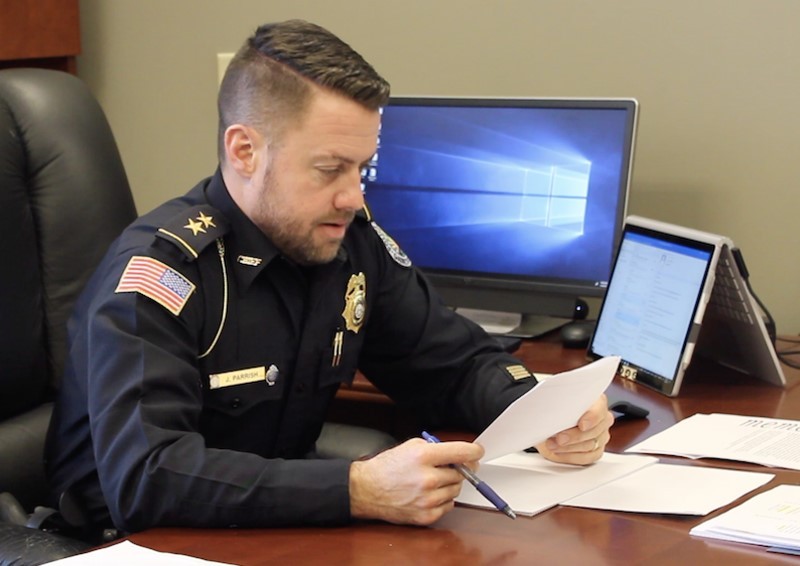Gainesville's top cop is hailing a pair of bills under consideration from state lawmakers to address problems with mental health and policing.
Senate Bill 403 would require community service boards to provide co-responders to local law enforcement agencies who want them.
Under the legislation, workers could respond virtually or in-person and would be able to refer someone to a treatment facility rather than arrest them.
"I think it's an excellent idea," said Jay Parrish, Chief of Police for the Gainesville Police Department. "Any program is better than no program at all."
Gainesville has had a similar program in place for several years. The department has a staff clinician to help officers respond to mental health calls.
"In the post-Ferguson era, we're looking at police-citizen encounters," Parrish told WDUN's Newsroom. He said he examined different cases from around the country and believes there's a link with mental health.
The Georgia House is considering House Bill 1013, which would expand access to mental health services in the Peach State and require insurance companies to cover mental health like physical health.
Parrish then saw how other agencies in many major cities created co-responder programs to handle the rising mental health cases. A health system community needs assessment, and a focus group through the United Way of Hall County led to the idea of embedding a clinician in law enforcement.
He said only a small percentage of the time do the two on-staff clinicians respond to calls the rest of the time they're doing casework.
"We actually have some of those patients now that know we are a resource and will directly call and ask for a specific officer that they know can get them help," Parrish explained. "They're able to avert the crisis before it even comes on because they learn about stability and what it's like to live with a mental health problem."
Parrish told WDUN that officers in the field decide whether to request the assistance of the mental health professional. Depression and suicide most often trigger that response, according to Parrish.
Since the department established the program, the department has made fewer arrests in mental health situations. Before the program, law enforcement could only take someone in for evaluation after they committed a crime.
"Any arrest could be a mark on your history that could prevent employment services in the future," he said. "So the whole idea was to keep people out of jail."
Parrish hopes the department will expand the program in the coming years. He'd like to see two more on-staff clinicians so there could be one per shift.









